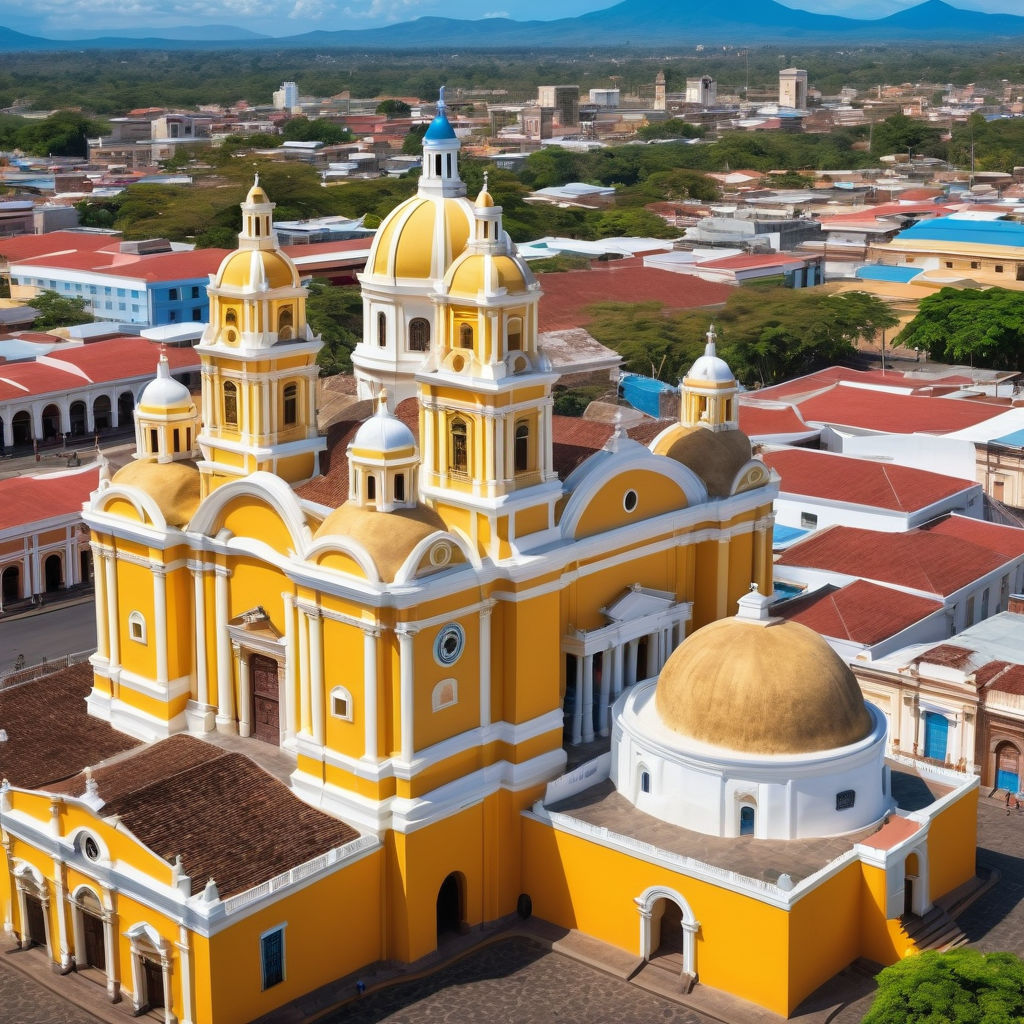Introduction to Nicaragua: Culture, Traditions, and Cross-cultural Engagement
Discover the Rich Cultural Heritage and Cross-cultural Connections of Nicaragua

Introduction to Nicaragua
Nicaragua, located in Central America, is bordered by Honduras to the north, Costa Rica to the south, the Caribbean Sea to the east, and the Pacific Ocean to the west. Its capital and largest city, Managua, sits on the southwestern shore of Lake Managua. Other major cities include León, Granada, and Masaya, each offering unique historical and cultural experiences. Nicaragua boasts a rich cultural heritage shaped by its indigenous roots, colonial history, and diverse ethnic influences. Nicaragua's cultural landscape is vibrant and diverse, encompassing indigenous traditions, Spanish colonial influences, and Afro-Caribbean elements. The country is renowned for its folklore, music, and dance, with traditions such as the Palo de Mayo, a lively dance from the Caribbean coast, and the Marimba, a traditional instrument played throughout the country. Nicaraguan cuisine reflects its agricultural abundance, featuring dishes like gallo pinto (rice and beans), nacatamal (corn dough stuffed with meat), and vigorón (yuca with pork rinds).
Cross-national and Cross-cultural Understanding
Nicaraguans generally perceive and engage with other cultures with warmth and openness. The country's history of migration and trade has fostered a culture that values diversity and cross-cultural exchange. Nicaraguans are known for their hospitality and willingness to learn about and embrace other cultures. Cultural exchanges play a significant role in promoting cross-cultural understanding in Nicaragua. Festivals such as the International Poetry Festival in Granada and the Festival Internacional de Teatro offer platforms for cultural exchange, attracting artists and audiences from around the world. These events celebrate both local and international art forms, fostering mutual understanding and appreciation. Educational programs in Nicaragua also emphasize global awareness and cross-cultural understanding. Schools and universities incorporate multicultural perspectives into their curricula, encouraging students to appreciate and respect diversity. Institutions like the National Autonomous University of Nicaragua (UNAN) engage in international collaborations and exchange programs, providing students and faculty with opportunities to experience different cultures and educational systems.
Interactions and Social Dynamics
Interactions between Nicaraguans and foreigners are generally characterized by friendliness, respect, and a strong sense of community. Social behaviors in Nicaragua reflect a blend of traditional customs and contemporary influences, emphasizing politeness, hospitality, and communal living. Communication styles in Nicaragua are typically informal and friendly. Spanish is the official language, but English is widely spoken in tourist areas and among the younger population. Additionally, indigenous languages such as Miskito, Sumo, and Rama are spoken in specific regions. This multilingualism facilitates interactions with tourists and expatriates, making it easier for them to integrate into the local community. Cultural norms in Nicaragua place a strong emphasis on family values, respect for elders, and community involvement. These norms create a welcoming and inclusive atmosphere for foreigners, who often find it easy to adapt to the local way of life. Public displays of affection are generally modest, reflecting the country’s traditional values, but social gatherings and communal activities are vibrant and inclusive.
Views on Dating and Relationships
Attitudes towards dating and relationships with foreigners in Nicaragua are generally open and accepting, though influenced by cultural and traditional norms. Nicaraguans recognize the opportunities for cultural exchange and personal growth that such relationships can bring. However, traditional customs and values play a significant role in shaping these views. Family involvement is significant in relationships in Nicaragua, with elders often playing a crucial role in the approval process. Traditional customs emphasize respect, patience, and the gradual building of trust in relationships. While modern dating practices influenced by global trends are becoming more common among younger generations, traditional values still hold sway in many communities.
Marriage and Family
Marrying a foreigner in Nicaragua involves navigating both legal and social considerations. Legally, the country has clear regulations governing marriage, including residency requirements and the need for proper documentation. Socially, cross-cultural marriages are generally accepted, though couples may face challenges related to cultural differences and integration. Familial acceptance is a key factor in cross-cultural marriages. Nicaraguan families can be protective, and gaining their approval is often essential for the relationship's success. However, the diverse cultural landscape of Nicaragua means that many families are already familiar with and accepting of different cultural backgrounds, which can facilitate smoother integration for foreign spouses. Trends in cross-cultural marriages reflect Nicaragua’s open and inclusive society. Many Nicaraguans who travel abroad for education or work form relationships with individuals from various cultures, bringing back diverse customs and traditions that enrich the local community.